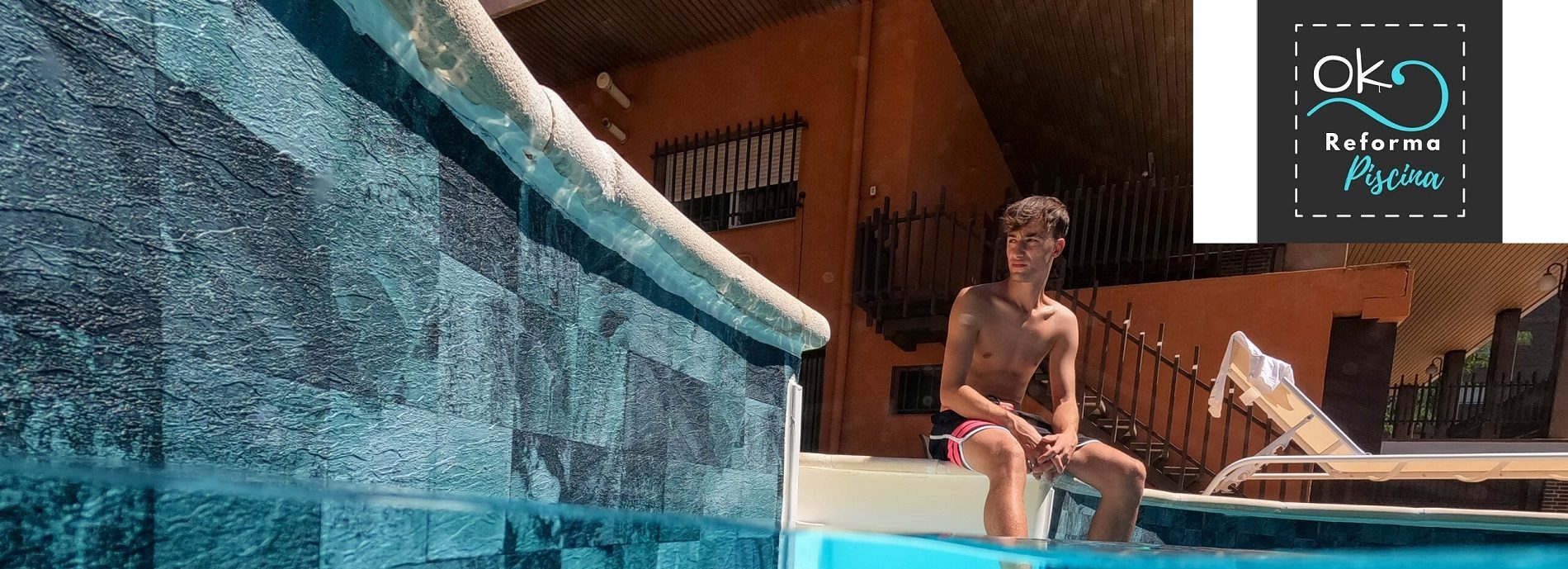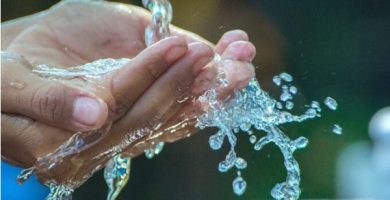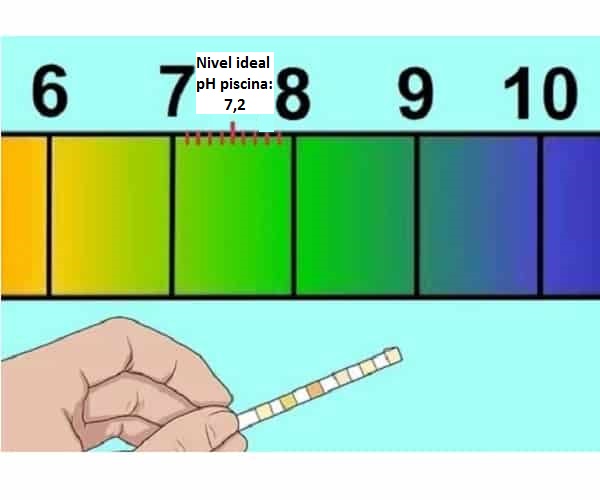
Table of contents of the page
En Ok Pool Reform within pool water maintenance guide We want to introduce you to the following article: Keep the pool clean with these essential maintenance tips.
Keep your pool clean with these essential maintenance tips

Summer is the perfect time to take a refreshing dip in your pool, but it's important to keep it clean and in good condition throughout the season.
Follow these essential maintenance tips to keep your pool looking and smelling great
- 1) Check the pH of the water and make sure it is within the recommended range of 7,2-7,
- 2) Make sure there is enough free chlorine in the water by using a chlorine test kit. Levels should be between 1 and 3 ppm
- 3) Apply liquid chlorine (3 L per 10 m3) as necessary to maintain desired chlorine levels
- 4) Apply algaecide, distributing it evenly over the surface of
1) The importance of maintaining your pool this summer
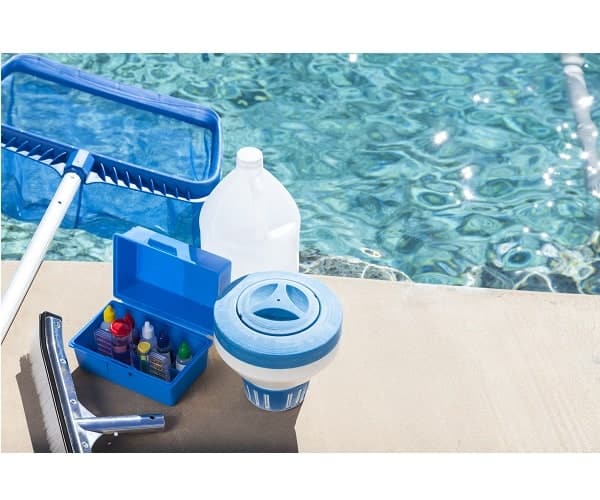
Useful guide to know how to clean the pool
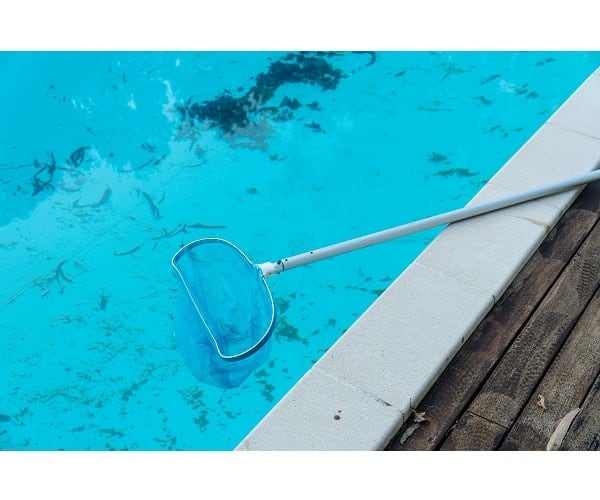
Guide to maintaining a pool with water in perfect condition
As the weather gets warmer and summer approaches, many people are starting to think about spending time outdoors and enjoying the warm weather.
For some, this means going to the beach or taking a dip in a nearby pool. However, before you can enjoy your pool to its full potential, it is important to ensure that it is properly maintained.
One of the most important aspects of pool maintenance is keeping the water clean. This means regularly checking pH and chlorine levels, as well as shock treating the water regularly. It is also important to vacuum the pool regularly to remove any debris that may have fallen into it.
Another important aspect of pool maintenance is ensuring that the pool itself is in good condition. This means regularly checking for cracks or leaks and repairing them as soon as possible. It is also important to check the filter and pump to make sure they are working properly.
Taking care of your pool this summer will ensure you can enjoy it all season long. By following these simple tips, you can keep your pool healthy and looking great all summer long!
2) Why pH and chlorine levels are important
Chlorine and pH levels are important because they can affect the effectiveness of disinfection.
Chlorine is a powerful disinfectant, but is less effective at lower pH levels. This is because chlorine is more acidic at lower pH levels, which can make it less effective at killing bacteria and other microorganisms.
Additionally, high pH levels can also make chlorine less effective. This is because high pH levels make chlorine more alkaline, which can neutralize its disinfecting properties.
3) How to check pH and chlorine levels
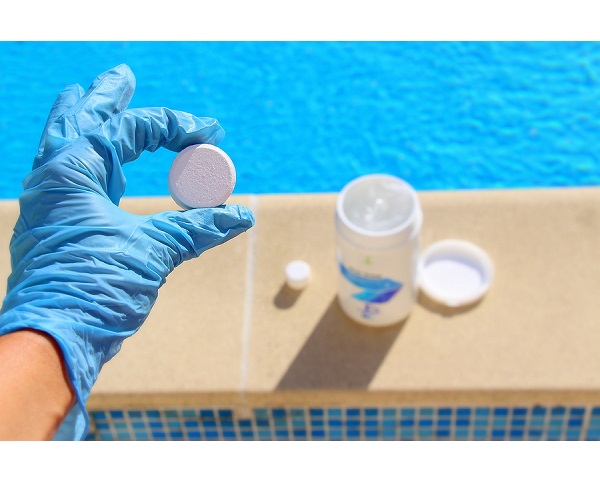
What is the level of the different values of chlorine in swimming pools?

How to measure pool ph, how often and types of meters
When it comes to checking your pool's pH and chlorine levels, there are a few things you should keep in mind.
First, you need to make sure you have the right testing equipment on hand. This includes a reliable pH testing kit and a good quality chlorine testing kit. Without these two items, it will be impossible to get an accurate reading of your pool's pH and chlorine levels.
Once you have the necessary testing equipment, you will need to take a water sample from your pool. The best way to do this is to use a clean, empty container that has been sterilized with boiling water. Fill the container with water from several different areas of the pool so you can get an accurate reading.
Once you have collected your water sample, it is time to begin testing. First, you will need to check the pH level of the water. To do this, simply follow the instructions that come with your pH test kit. Once you have your test results, compare them to the chart included with your kit to determine the acidity or alkalinity of your water.
Next, you will need to check the chlorine levels of your pool water. Again, follow the instructions that come with your chlorine testing kit and compare the results to the chart included in the kit. Please note that there is no “ideal” chlorine level for all pools. The right level for your pool will depend on factors such as its size, the number of people who use it regularly, and even the climate in which you live.
After checking the pH and chlorine levels of your pool water, it is important to take action if any of these levels are too high or too low. If the pH level is too low, it can cause skin irritations and eye problems for bathers. On the other hand, if the chlorine level is too high, it can cause problems such as respiratory irritation and an increased risk of getting sick from bacteria and viruses present in the pool water.
4) How to adjust pH and chlorine levels
It is important to maintain pH and chlorine levels in swimming pools so that the water is clean and safe for bathers.
The ideal pH level for swimming pools is between 7,2 and 7,6, and chlorine between 1 and 3 ppm (parts per million).
There are several ways to adjust the pH and chlorine levels of a pool.
- Firstly, you can use chemicals to raise or lower the levels. For example, you can use sodium carbonate (also known as soda ash) to raise the pH level, and you can use muriatic acid to lower it. You can also use chlorine tablets or granules to raise the chlorine level.
- Second, you can adjust the pH and chlorine levels by changing the way you add water to the pool. For example, if you live in an area with hard water, that water can raise the pH level of your pool. To counteract this, you can add acid to the water before pouring it into the pool. This will help lower the pH level of the pool.
- Third, you can adjust pH and chlorine levels by changing how often you backwash your filter. Backwashing helps remove dirt and debris from your pool, but it also removes some of the chemicals used to maintain pH and chlorine levels. Backwashing too frequently can cause pH and chlorine levels to drop too low. On the other hand, if you don't backwash often enough, you can cause them to rise too high. The best way to determine how often you should backwash your filter is to check the pH and chlorine levels regularly and make adjustments as necessary.
5) Tips to keep your pool clean all summer

If you want to keep your pool clean all summer long, there are a few things you can do.
First of all, you need to make sure that you are using the right type of chemicals in your pool. This will help eliminate any bacteria or algae that may be growing in your pool.
Secondly, you should brush your pool regularly. This will help remove any dirt or debris that may be floating in your pool.
Lastly, vacuum the pool regularly. This will help remove any dirt or debris that has settled on the bottom of your pool.
By following these simple tips, you will be able to enjoy your pool all summer long without worries!
